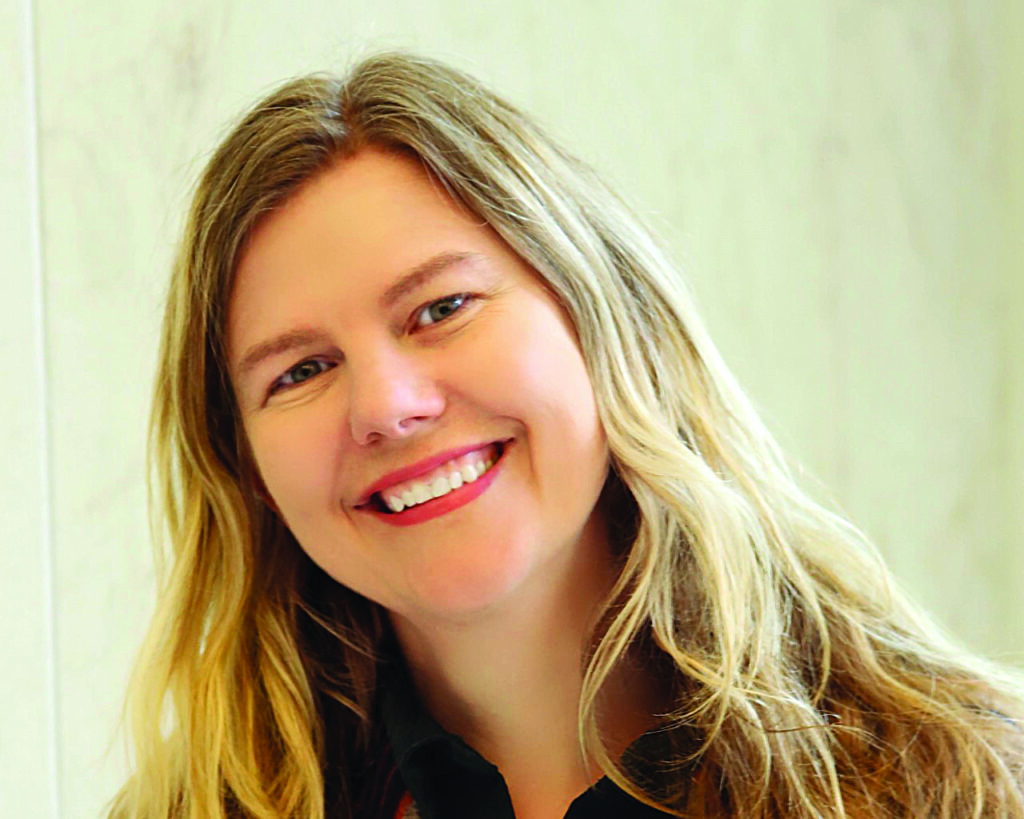From Kentucky, North Carolina, Tennessee, Maryland, Alaska and Utah, Brosi’s passion for ecology evolved in each state

Her passion for ecology drew Utah State University Eastern’s Dr. Sunshine Brosi to Price, but the warm community makes her want to stay. After arriving in August, Brosi is happily surprised with how wonderful the people are–both the students at USUE and the community of Castle Country. She has lived all over the United States and after living in many rural coal mining towns, Price feels like home to her in many ways.
Brosi grew up in Kentucky. Her parents loved nature and she and her six siblings were all given nature-themed names. Her mother was a teacher and passionate about botany. “She really knew her plants,” Brosi said.
One day Brosi was talking to one of her mother’s students. She said, “Your mom made me feel proud of who I am.” This conversation impacted Brosi and gave her the desire to become a teacher. Teaching runs in the family–two of Brosi’s sisters are teachers.
Following her educational path all around the U. S., Brosi earned a bachelor’s of science degree in environmental studies in North Carolina. She received a master’s degree in forestry from the University of Kentucky and completed her Ph.D. in natural resources from the University of Tennessee.
After earning her doctorate degree, Brosi taught at Frostburg State University in Maryland for 13 years. During summer breaks, she taught botany in Alaska. She has conducted research in both the Great Smoky Mountains National Park and Mammoth Caves National Park.
In 1994, Brosi attended the National 4H wildlife competition in Brian Head, Utah, which was organized by USU Eastern’s Mike King.
“I fell in love with Utah and always wanted to come back,” she said. She never imagined she would return to Utah to replace King’s position when he retired.
At USUE, she teaches classes on wildlife ecology and management, range management and other classes in wildland resources, watershed science and biology. “What I love most about my work is the students. They are really good people. They want to learn and approach their studies as scholars,” she said.
Brosi and her students are currently engaged in several research projects. One research project is focused on stream restoration. Streams are often overgrazed and entrenched from flooding. Beavers are naturally gifted at restoring streams.
Their dams reduce erosion, prevent flooding and prevent sediments from being washed out. In this project, undergraduate students pretend to be beavers.
They build beaver-like dams out of wooden slats and weave them together with willows. The student-made dams pool up water which both reduces flooding and provides habitat for fish and other species.
Another project is with the Rosebud Indian Reservation in South Dakota, researching food sovereignty and food security. This includes installing gardens in the spring and managing the bison population.
Brosi also conducts research on packrats, bats and birds. Researching birds, students go out early in the morning to detect bird sounds. They study the effect of noise pollution on bird calls and compare data with students attending the Vernal and Logan campuses.
More research projects have been done in ethnobotany. She makes hand balm out of cottonwoods and hosts workshops teaching others to make shampoo out of yucca. She also helps others set up Etsy shops to sell sustainable products.
Earlier in her life, Brosi was mentored by naturalist Thomas Barnes, professor at the University of Kentucky.
In addition to teaching her about botany and introducing her to King, Barnes also taught Brosi about historic influential female botanist and ecologist E. Lucy Braun. Braun was the first female president of the Ecological Society of America and a founder of what later became the Nature Conservancy.
Brosi read Braun’s books and often thought about what Braun’s life was like. She imagined Braun in the 1920’s and 30’s, driving a Model-T Ford while doing fieldwork in rural areas at a time when it was not typical for women to be scientists. Brosi was deeply inspired by Braun’s legacy.
Brosi had the opportunity to portray Braun in the PBS show “A Force of Nature.” She sewed a 1930’s era costume using a vintage pattern. Brosi has given many presentations about Braun during her career.
Braun taught botany to a woman who taught botany to Brosi’s mother. She is only one step removed from her favorite botanist.
In addition to leading a life full of passion for her work, Brosi enjoys reading. Her favorite genres include memoirs and nature writing. She also loves hiking, camping, birding and spending time in nature.
Brosi plans to stay in Price possibly for the rest of her career. “My favorite saying is ‘bloom where you are planted.’ The grass might look greener, but we can always make the best of where we are.”
A genuine and caring person, Brosi’s goals surround the students. She wishes to figure out the needs of the students both during COVID-19 and beyond. She is concerned with students meeting their basic needs and making sure they have access to food, childcare and laundry facilities. Brosi is especially concerned with students who are parents.
She vividly remembers attending graduate school as a mother to a toddler. She hopes to create a parent club on campus where parents can connect and support one another.
Other goals including making the campus more sustainable: recycling, ride-sharing programs, environmentally friendly landscaping, electric car charging stations and solar panels. She would like to see more cooperation between Carbon High School and USUE, and she is specifically involved with Future Farmers of America, 4H, Science Fair and other STEM programs.




